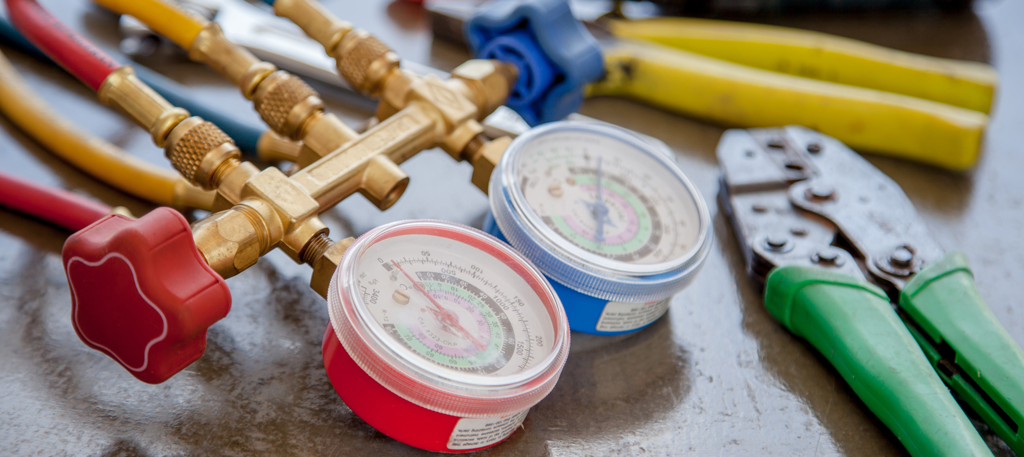
Quick Fix: Air Conditioner Repair Solutions That Work
Have you ever found yourself in the sweltering heat of summer, only to realize your air conditioner has stopped working?
It’s a common dilemma for homeowners, leaving you uncomfortable and stressed. Air conditioner repair might seem daunting, but understanding your options can make a world of difference.
In this article, we’ll dive deep into the world of air conditioner repair. From identifying common issues to exploring DIY fixes and when to call in the professionals, we’ve got you covered.
You’ll learn about maintaining your AC unit to prevent future problems and discover the latest trends in air conditioning technology that could save you time and money.
Also read: Effortless Hydronic Heating System Repair: A Homeowner’s Guide
A Detailed Explanation of Air Conditioner Repair
Air conditioner repair involves diagnosing and fixing issues within your AC system to ensure it runs efficiently.
Common problems include refrigerant leaks, dirty air filters, and faulty wiring. Addressing these issues promptly can prevent more significant, costly repairs down the line.
What is Air Conditioner Repair?
Air conditioner repair encompasses a wide array of services aimed at restoring optimal functionality to your cooling system.
At its core, it involves a meticulous process of troubleshooting, diagnosing, and rectifying problems that may hinder your air conditioner’s performance. This essential service ensures that your AC system operates at peak efficiency, providing you with a comfortable indoor environment, especially during the sweltering summer months.
The scope of air conditioner repair can vary significantly, from straightforward tasks that homeowners can often undertake themselves to more intricate procedures that necessitate the expertise of a skilled technician.
Simple maintenance tasks, such as replacing or cleaning air filters, are crucial for maintaining airflow and improving the overall air quality in your home. These filters trap dust, pollen, and other airborne particles, preventing them from circulating through your living space.
Over time, however, they can become clogged, which can strain your AC system, leading to decreased efficiency and potential system failures.
On the more complex end of the spectrum, air conditioner repair may involve addressing refrigerant leaks. The refrigerant is the lifeblood of your AC system, responsible for cooling the air within your home.
A leak not only reduces the efficiency of your system but can also pose environmental and health risks. Similarly, electrical issues, such as faulty wiring or malfunctioning thermostats, can prevent your air conditioner from operating correctly or even cause it to shut down entirely.
Another critical aspect of air conditioner repair is the inspection and potential replacement of the compressor. The compressor plays a pivotal role in the cooling process, compressing the refrigerant and circulating it through the system.
A malfunctioning compressor can lead to a complete system breakdown, requiring immediate attention to prevent more significant issues.
air conditioner repair is a comprehensive term that covers a range of activities from basic maintenance to complex repairs.
Its goal is to ensure that your AC system remains reliable, efficient, and effective at keeping your home cool and comfortable, regardless of the outdoor temperatures.
Understanding Your AC Unit: A Comprehensive Guide
Navigating the complexities of your air conditioning system can seem daunting, but gaining an understanding of how your AC unit operates can empower you to maintain it more effectively and identify issues before they escalate.
This guide will break down the essential components and functions of your AC unit, helping you to ensure its efficiency and longevity.
The Core Components
Compressor
Often referred to as the heart of the air conditioning system, the compressor plays a crucial role in the cooling process.
It circulates the refrigerant necessary for heat exchange through the coils of the unit, enabling the cooling of your home. Understanding its function can help you identify when issues might be related to refrigerant levels or compressor performance.
Condenser Coil
Located in the outdoor unit, the condenser coil releases the heat removed from your home’s air outside. Keeping the area around the outdoor unit clear and ensuring the coil is clean are key steps in maintaining your AC’s efficiency.
Evaporator Coil
Found in the indoor unit, the evaporator coil absorbs heat from your home’s air, allowing cool air to be circulated back into the room. Issues with the evaporator coil can lead to your AC blowing warm air or not cooling efficiently.
Air Filters
One of the most critical yet easily manageable components of your AC system, air filters trap dust, pollen, and other airborne particles.
Regularly cleaning or replacing these filters can prevent airflow restrictions and maintain air quality in your home.
Understanding the Cooling Cycle
The cooling cycle begins when the thermostat signals the AC unit to lower the temperature in your home.
The compressor then pumps refrigerant to the evaporator coil, where it absorbs heat from the indoor air and turns from a liquid into a gas. As the warm air is removed, cooled air is pushed back into the room.
The refrigerant, now a warm gas, moves to the condenser coil where it releases the absorbed heat to the outside air and turns back into a liquid. This cycle repeats to maintain the desired temperature in your home.

Maintenance Tips for Optimal Performance
Regular Check-Ups
Scheduling annual maintenance with a professional can help ensure all components of your AC unit are functioning correctly and efficiently.
Clean Surroundings
Keeping the area around your outdoor unit clear of debris and ensuring the indoor vents are unobstructed can improve airflow and system efficiency.
Monitor Performance
Paying attention to how well your AC is cooling, as well as any unusual noises or behaviors, can help you catch issues early, before they require major repairs.
Understanding your AC unit is key to maintaining a comfortable and efficient home environment.
By familiarizing yourself with the core components and the cooling cycle, you can better identify potential issues and perform basic maintenance tasks. Remember, regular check-ups and cleanings are essential to prolonging the life of your unit and ensuring it runs smoothly throughout the cooling season.
Understanding Common AC Problems
When it comes to maintaining a comfortable living environment, especially during the hot summer months, ensuring your air conditioning system is functioning correctly is crucial.
However, several common issues can arise, affecting the efficiency and performance of your AC unit. Recognizing and addressing these problems promptly can save you from discomfort and costly repairs down the line.
Refrigerant Leaks
Refrigerant leaks are among the most common issues faced by homeowners. The refrigerant is the substance that your AC system uses to remove heat and humidity from the air in your home, making it essential for cooling.
When there is a leak in the system, it can lead to a significant drop in cooling efficiency, higher energy consumption, and even potential damage to the environment.
Identifying and repairing refrigerant leaks early is crucial to maintaining your air conditioner’s performance and longevity.
Dirty Filters
Another frequent problem is dirty or clogged air filters. Air filters play a vital role in your AC system, trapping dust, pollen, and other airborne particles to improve the indoor air quality of your home.
However, over time, these filters can become clogged with debris, restricting airflow and forcing your AC unit to work harder than necessary. This not only strains your system, leading to potential breakdowns but also results in higher energy bills and reduced air quality.
Regularly checking and replacing your air filters can prevent these issues and keep your air conditioner running smoothly.
Electrical Issues
Electrical issues can also significantly impact the performance of your air conditioning system.
Faulty wiring, malfunctioning thermostats, or tripped circuit breakers can prevent your AC from turning on or cause it to shut off unexpectedly. These problems not only disrupt your comfort but can also pose safety risks if not addressed promptly.
Electrical issues often require professional air conditioner repair and diagnosis to ensure your system is safe and operational.
Understanding these common AC problems and knowing how to address them can significantly enhance the efficiency and reliability of your air conditioning system.
Regular maintenance, such as checking for refrigerant leaks, replacing dirty filters, and ensuring the electrical system is in good working order, can prevent many of these issues from arising in the first place.
However, when problems do occur, it’s essential to seek the help of a professional air conditioner repair service to ensure your system is repaired correctly and efficiently.
Also read: AC Unit Frozen Pipe Outside: Quick Fixes For Homeowners
DIY Fixes vs. Professional Help
Navigating the realm of air conditioner repair can often feel like walking a fine line between what you can handle yourself and when it’s time to call in the experts.
Understanding the distinction between DIY fixes and situations that necessitate professional help is crucial for maintaining your AC’s efficiency while ensuring your safety and preventing further damage.
Simple DIY Repairs
Replacing or Cleaning Air Filters
One of the most straightforward and effective DIY air conditioner maintenance tasks is replacing or cleaning the air filters. This task does not require specialized knowledge or tools and can significantly impact your AC’s performance and indoor air quality.
Dirty filters restrict airflow and reduce system efficiency, so keeping them clean is essential.
Thermostat Troubleshooting
Sometimes, the issue might not be with the AC unit itself but with the thermostat. Before calling for professional help, check to ensure the thermostat is set correctly and functioning.
Replacing batteries or resetting the thermostat can sometimes resolve the issue without the need for a technician.
Clearing Drain Lines
The AC’s drain line can become clogged with algae, dirt, and debris, leading to water leaks and reduced efficiency.
Cleaning the drain line is a manageable task for most homeowners. You can use a wet/dry vacuum to clear the blockage and flush the line with a mixture of bleach and water to prevent future clogs.

When to Call Professional Help
Refrigerant Leaks
Dealing with refrigerant requires specialized tools and knowledge due to its hazardous nature and the environmental regulations surrounding its handling.
If you suspect your AC has a refrigerant leak, it’s crucial to contact a certified air conditioner repair professional who can safely repair the leak and recharge the system.
Electrical Issues
Electrical problems, such as faulty wiring or issues with the AC’s circuit board, pose significant safety risks and require an understanding of electrical systems.
Air conditioner repair professional technicians have the expertise to diagnose and repair these issues safely, ensuring your system operates correctly without risking further damage or safety hazards.
Complex Mechanical Problems
Some AC problems, like a malfunctioning compressor or issues with the evaporator coils, are beyond the scope of DIY repairs. These components are integral to your AC’s operation, and attempting to repair them without the proper knowledge can lead to more significant issues.
Air conditioner repair professionals have the tools and training to address these complex problems effectively.
Understanding the balance between DIY fixes and the need for professional air conditioner repair can save you time, money, and ensure your system’s longevity.
While some tasks are perfectly suited for the handy homeowner, recognizing when to call in the experts is crucial for complex or hazardous issues.
Always prioritize safety and efficiency by choosing the right approach for your air conditioner’s maintenance and repair needs.
Preventative Maintenance: Ensuring Longevity and Efficiency of Your AC Unit
Preventative maintenance is the cornerstone of keeping your air conditioning system running smoothly, efficiently, and for as long as possible.
Engaging in regular maintenance activities not only helps in extending the lifespan of your AC unit but also in preventing future breakdowns that can be costly and inconvenient.
By adopting a proactive approach to maintenance, you can ensure that your air conditioner remains a reliable source of comfort during the hot summer months.
The Importance of Regular Check-Ups
Annual Professional Servicing
One of the most critical steps in preventative maintenance is scheduling annual check-ups with an air conditioner repair professional service technician. These air conditioner repair experts can perform a comprehensive examination of your AC system, identifying and rectifying minor issues before they escalate into major problems.
During these check-ups, technicians will inspect the refrigerant levels, test the system’s electrical components, clean the evaporator and condenser coils, and ensure that the system operates efficiently. This annual service is crucial for maintaining optimal performance and extending the unit’s lifespan.
Cleaning and Clearing Debris
The area around your outdoor AC unit is prone to accumulating leaves, dirt, and other debris, which can obstruct airflow and reduce your system’s efficiency.
Regularly cleaning around the unit and removing any debris can prevent these airflow obstructions, allowing your AC to run more smoothly and efficiently. This simple task can significantly impact your air conditioner’s performance and is an easy step for any homeowner to take.
DIY Maintenance Tips
Regular Filter Replacement
Air filter maintenance is something that homeowners can easily manage.
Dirty air filters restrict airflow and can cause your system to work harder, leading to increased wear and tear. By regularly replacing or cleaning your AC’s air filters, you can improve air quality in your home and enhance your system’s efficiency and longevity.
Thermostat Settings
Optimizing your thermostat settings can also play a significant role in preventative maintenance.
Using programmable thermostats to adjust the temperature when you’re not home can reduce the workload on your AC unit, thereby extending its life and saving energy.
Sealing and Insulation
Ensuring that your home’s ductwork is properly sealed and insulated can prevent cool air from escaping, improving your AC system’s efficiency. This can be a more involved task, but it’s an important aspect of maintaining an efficient air conditioning system.
Preventative maintenance is essential for keeping your air conditioning system in top condition.
By scheduling regular professional check-ups, cleaning around your unit, and taking care of simple DIY maintenance tasks, you can significantly extend the lifespan of your AC unit and ensure it runs efficiently.
These steps not only save you money on future repairs but also contribute to a more comfortable and cool home environment during the warmest months.

Essential Tools for Air Conditioner Repair
When it comes to maintaining and repairing your air conditioning system, having the right tools on hand is crucial.
Whether you’re a DIY enthusiast looking to tackle basic maintenance tasks or a air conditioner repair professional technician preparing for more complex repairs, understanding the essential tools for air conditioner repair can make the process smoother and more efficient.
Here’s a breakdown of the must-have tools and their purposes in AC maintenance and repair.
Basic Hand Tools
Screwdrivers and Wrenches
A variety of screwdrivers (both flathead and Phillips) and wrenches are indispensable for opening the AC unit, adjusting components, and securing connections. Adjustable wrenches and socket sets can be particularly useful for dealing with different sizes of nuts and bolts.
Pliers
Needle-nose and wire-stripping pliers are essential for gripping small parts and handling electrical wiring, respectively. Locking pliers can also be helpful for securing components while you work on them.
Specialized HVAC Tools
Multimeter
A multimeter is a critical tool for diagnosing electrical issues within the AC system. It measures voltage, current, and resistance, helping to identify problems with motors, compressors, and other electrical components.
Refrigerant Gauges
These gauges are used to measure the pressure of the refrigerant in the AC system, which is crucial for ensuring it operates efficiently and effectively. They can help diagnose issues like refrigerant leaks or undercharging.
Vacuum Pump
A vacuum pump is used to remove moisture and air from the refrigerant lines and system before charging it with refrigerant. This process, known as evacuation, is essential for the proper functioning of the AC system.
Safety Gear
Gloves and Goggles
Safety should always be a priority when working on an air conditioning system. Durable gloves protect your hands from sharp edges and electrical components, while safety goggles protect your eyes from debris and harmful substances.
Insulated Tools
When working with electrical components, using insulated screwdrivers and pliers can provide an extra layer of protection against electric shock.
Diagnostic and Cleaning Tools
Leak Detector
For identifying refrigerant leaks, a leak detector is an invaluable tool. These devices can detect even small leaks, which are crucial for maintaining system efficiency and environmental safety.
Fin Comb
The fins on the evaporator and condenser coils can become bent over time, which impedes airflow. A fin comb is a simple tool used to straighten these fins and restore proper airflow through the coils.
Coil Cleaning Brush and Solutions
Keeping the AC coils clean is essential for efficient operation. A soft-bristle brush and specialized cleaning solutions can remove dirt, debris, and buildup from the coils, improving the system’s performance.
Equipping yourself with the essential tools for air conditioner repair can significantly enhance your ability to maintain and repair your AC system effectively.
From basic hand tools to specialized HVAC equipment, each tool plays a vital role in ensuring your air conditioning system remains in top working condition. Whether you’re performing routine maintenance or tackling more complex repairs, having the right tools at your disposal is key to a successful outcome.
Here’s everything else you need to know about keeping your air conditioner in top shape, including the latest trends and how to choose a repair service that meets your needs.
Advanced Air Conditioner Repair Techniques
In this section, we delve into advanced air conditioner repair techniques that go beyond basic maintenance and troubleshooting.
These methods require a deeper understanding of HVAC systems and are aimed at addressing more complex issues that can arise with air conditioners.
Diagnosing Electronic Control Failures
Electronic control failures are common in modern air conditioners, which rely on sophisticated circuitry for operation.
Understanding how to diagnose these issues involves checking the thermostat, control board, and associated wiring.
Techniques include using a multimeter to test for continuity and inspecting solder joints on the control board for signs of wear or damage. This process ensures that the electrical components of the air conditioner are functioning correctly and can help prevent intermittent operation or complete system failure.
Repairing Compressor Issues
The compressor is often considered the heart of the air conditioning system, and issues with this component can be both complex and challenging to repair.
Techniques for addressing compressor problems include checking the refrigerant levels, assessing the compressor’s electrical connections, and testing the compressor motor’s winding resistance.
In some cases, replacing the compressor may be necessary, a task that requires specialized tools and knowledge of refrigerant handling procedures.
Fixing Refrigerant Leaks
Refrigerant leaks not only reduce the efficiency of an air conditioner but can also harm the environment.
Advanced repair techniques for fixing refrigerant leaks involve using electronic leak detectors, applying UV dye to the system to locate leaks, and properly sealing any detected leaks.
Once leaks are repaired, the system must be evacuated and recharged with refrigerant according to the manufacturer’s specifications. This process ensures that the air conditioner operates efficiently and minimizes the impact on the environment.
Optimizing Airflow and Ductwork
Improper airflow can significantly affect the efficiency and effectiveness of an air conditioning system.
Techniques for optimizing airflow include inspecting and cleaning the blower fan, adjusting fan speeds, and ensuring that ductwork is properly sealed and insulated. Additionally, assessing the home for air leaks and improving insulation can help maintain consistent temperatures and reduce the workload on the air conditioner.
Advanced air conditioner repair techniques are essential for addressing complex issues that can arise with modern HVAC systems.
By understanding and applying these methods, technicians can ensure that air conditioners operate efficiently, reliably, and safely.
Whether dealing with electronic control failures, compressor issues, refrigerant leaks, or airflow problems, a comprehensive approach to repair can extend the life of the system and improve comfort levels in the home.
The Role of Technology in Air Conditioner Repair
The evolution of technology has significantly impacted the field of air conditioner repair, introducing new tools, methods, and systems that enhance the efficiency and effectiveness of repair work.
This section explores how technological advancements have transformed air conditioner repair, offering both technicians and homeowners innovative solutions to common AC problems.
Smart Diagnostics and IoT Integration
Smart Diagnostics
Modern air conditioners are increasingly equipped with smart diagnostic features that can alert homeowners and air conditioner repair technicians to potential issues before they escalate.
These systems monitor the AC’s performance and use algorithms to predict failures, such as compressor malfunctions or refrigerant leaks, allowing for preemptive repairs that can save time and money.
IoT Integration
The Internet of Things (IoT) has made it possible for air conditioners to be integrated into home automation systems, providing real-time data on system performance and efficiency.
This connectivity allows for remote monitoring and control, enabling technicians to diagnose and sometimes even resolve issues without needing to make a house call. IoT integration not only streamlines the repair process but also enhances the convenience and comfort for homeowners.
Advanced Thermal Imaging
Leak Detection
Thermal imaging cameras have become an invaluable tool in air conditioner repair, especially for detecting refrigerant leaks and identifying areas of inefficiency within the system.
By visualizing the temperature differences in various components of the AC unit, technicians can pinpoint leaks and blockages that might not be visible to the naked eye, leading to more accurate and efficient repairs.
Insulation and Airflow Analysis
Beyond leak detection, thermal imaging can also be used to assess the effectiveness of a home’s insulation and the AC system’s airflow.
Poor insulation or airflow issues can cause the air conditioner to work harder than necessary, leading to increased wear and tear.
By identifying these problems, air conditioner repair technicians can recommend solutions that improve the overall efficiency of the air conditioning system.
Automated Maintenance Reminders
Scheduled Maintenance
With the advent of smart home technology, air conditioners can now remind homeowners when it’s time for routine maintenance, such as changing air filters or scheduling professional air conditioner repair service checks.
These automated reminders help ensure that the AC unit remains in optimal condition, reducing the likelihood of unexpected breakdowns and extending the lifespan of the system.
Technology has revolutionized air conditioner repair, making it more efficient, effective, and convenient.
From smart diagnostics and IoT integration to advanced thermal imaging and automated maintenance reminders, these technological advancements support proactive maintenance strategies and enhance the overall performance of air conditioning systems.
As technology continues to evolve, we can expect even more innovative solutions to emerge, further improving the way we maintain and repair our AC units.

Top 5 Air Conditioner Repair and Maintenance Tips and Strategies | Tested and Proven
Maintaining an efficient and effective air conditioning system is crucial for comfort, especially during the hot months.
Implementing certain strategies and tips can prevent common issues, extend the lifespan of your unit, and ensure it operates at peak efficiency.
Here are the top five air conditioner repair and maintenance tips every homeowner should know.
-
Regular Maintenance: The Foundation of AC Efficiency
Annual Professional Servicing: The cornerstone of keeping your air conditioning system in top shape is ensuring it undergoes professional air conditioner repair and servicing at least once a year.
This preventive measure allows technicians to catch and address minor issues before they escalate into significant problems, ensuring your system runs smoothly throughout the year.
Regular maintenance checks include inspecting refrigerant levels, cleaning coils, checking the thermostat, and ensuring all electrical components are in good working order.
-
Change Filters Regularly: A Simple Step with Big Impact
Improving Air Quality and Efficiency: One of the simplest yet most effective ways to maintain your AC’s efficiency is by regularly changing or cleaning its air filters.
Over time, filters can become clogged with dust, pet dander, and other pollutants, reducing airflow and forcing the system to work harder. This not only decreases efficiency but also impacts indoor air quality.
Experts recommend changing filters every 30-90 days, depending on usage and environmental factors.
-
Check Thermostat Settings: Optimize for Efficiency
Energy Savings and Comfort: Incorrect thermostat settings can lead to unnecessary strain on your air conditioning system, causing it to work harder than needed.
Ensure your thermostat is correctly calibrated and consider upgrading to a programmable or smart thermostat. These devices allow you to set your AC to run less when you’re not home, saving energy and reducing wear on the system.
-
Inspect Outdoor Units: Clearing the Way for Airflow
Maintaining Clear Surroundings: The outdoor unit of your air conditioner needs adequate space to expel heat effectively.
Keep the area around it clear of leaves, debris, and other obstructions to maintain proper airflow.
A minimum clearance of 2-3 feet around the unit is recommended for optimal performance. This simple task can prevent overheating and improve the efficiency of your AC system.
-
Seal and Insulate Ductwork: Ensuring Efficient Operation
Maximizing Airflow and Reducing Losses: Properly sealing and insulating your home’s ductwork can prevent cool air from escaping, significantly improving the efficiency of your air conditioning system.
Leaks and poor insulation in ductwork can lead to substantial energy loss, making your AC work harder to cool your home.
Hiring an air conditioner repair professional to inspect and repair any leaks or insulation issues in your ductwork can lead to improved performance and energy savings.
Implementing these top five air conditioner repair tips and strategies can lead to significant improvements in your AC system’s efficiency and longevity.
From regular maintenance and filter changes to optimizing thermostat settings and ensuring proper airflow around the outdoor unit, each step plays a crucial role in maintaining a comfortable and energy-efficient home.
One Hour Air Conditioning & Heating of Dallas: Your Trusted Air Conditioner Repair Partner
In the heart of Texas, where the heat can be relentless, having a reliable air conditioning system is not just a luxury; it’s a necessity.
For residents of Dallas and its surrounding areas, One Hour Air Conditioning & Heating stands out as a beacon of reliability and professionalism in the realm of air conditioner repair services.
Catering to a wide range of locations including Addison, TX, Allen, TX, Carrollton, TX, Dallas, TX, Frisco, TX, Irving, TX, Lewisville, TX, McKinney, TX, Plano, TX, Richardson, TX, and The Colony, TX, One Hour Air Conditioning & Heating ensures that expert help is never too far away.
Unmatched Professionalism and Efficiency
Expert Technicians
One Hour Air Conditioning & Heating prides itself on its team of highly skilled and experienced technicians.
Each professional is equipped with the latest knowledge and tools to diagnose and fix any air conditioner issue, ensuring your system runs smoothly and efficiently. Their commitment to ongoing training means they’re always up-to-date with the latest AC repair techniques and technologies.
Timely Service
Understanding the discomfort and inconvenience a malfunctioning AC unit can cause, One Hour Air Conditioning & Heating lives up to its name by offering prompt service.
They value your time, ensuring that help arrives within the scheduled appointment window, so you’re not left waiting.
For those in the Dallas area and beyond, One Hour Air Conditioning & Heating is your go-to source for all air conditioner repair needs. Their dedication to professionalism, efficiency, and customer satisfaction makes them a top choice for homeowners seeking reliable and effective AC repair services.
Check out their glowing reviews and ratings here, and don’t hesitate to call # 469-598-0524 for exceptional service.
Whether you’re facing an emergency repair or looking for routine maintenance, One Hour Air Conditioning & Heating is ready to ensure your home remains a cool oasis in the Texas heat.
Conclusion: Simplifying Air Conditioner Repair
Navigating the complexities of air conditioner repair can seem daunting at first.
However, armed with the right knowledge and a proactive maintenance strategy, managing your AC’s upkeep can become a straightforward part of your home care routine.
Understanding the common issues that can affect your system, from refrigerant leaks to dirty filters and electrical problems, is the first step towards ensuring your unit operates efficiently and effectively.
Implementing regular maintenance checks, including professional servicing and simple DIY tasks, can significantly extend the lifespan of your air conditioner, ensuring it delivers optimal cooling performance when you need it most.
Moreover, recognizing when to seek professional help for more complex repairs is crucial in preventing minor issues from escalating into major problems.
Services like One Hour Air Conditioning & Heating of Dallas offer expert assistance, ensuring that residents in Dallas and surrounding areas have access to reliable and efficient air conditioner repair services.
As we’ve explored various strategies and tips for maintaining your AC, it’s clear that air conditioner repair doesn’t have to be a source of stress.
With a bit of effort and the right support, you can enjoy a cool and comfortable home environment all summer long. We’d love to hear about your experiences with air conditioner repair and how it has improved your home’s comfort. Share your stories in the comments below and let’s continue the conversation on keeping our homes cool and comfortable.

FAQs
- How often should I service my air conditioner?
Regular servicing at least once a year is recommended to maintain efficiency and prevent issues.
- Can I perform any air conditioner maintenance tasks myself?
Yes, tasks like changing air filters and keeping the area around your unit clean can be done yourself.
- What are the signs I need air conditioner repair?
Increased energy bills, strange noises, and insufficient cooling are common signs.
- How long does an air conditioner repair take?
It depends on the issue, but most repairs can be completed in a few hours.
- Is it worth repairing an old air conditioner?
If your unit is over 10 years old and frequently needs repairs, it might be more cost-effective to replace it.
- How can I tell if my air conditioner needs more refrigerant?
If your air conditioner is not cooling your home as effectively as it used to, or if you notice the unit is blowing warm air, these could be signs that it needs more refrigerant.
- How often should I clean or replace the air filters in my AC?
The frequency at which you should clean or replace your air filters can vary based on several factors, including the type of filter, your usage patterns, and whether you have pets.
Generally, it’s recommended to check your filters every month during peak usage seasons and replace or clean them as needed, typically every 30 to 90 days.
- What are the benefits of sealing and insulating my home’s ductwork?
Sealing and insulating your home’s ductwork can significantly improve the efficiency of your air conditioning system.
Benefits include reduced energy consumption, lower utility bills, improved indoor air quality, and more consistent temperatures throughout your home.
- Can a smart thermostat really help save on air conditioning costs?
Yes, a smart thermostat can help save on air conditioning costs by optimizing your home’s cooling schedule based on your habits and preferences.
These devices can adjust the temperature automatically when you’re not home or during cooler parts of the day, reducing unnecessary cooling and thereby lowering energy consumption.
- What should I do if my air conditioner starts making strange noises?
If your air conditioner starts making strange noises, such as grinding, squealing, or banging sounds, it’s important to turn the unit off and contact a professional for an inspection.
See our previous blog here.
Check out our reviews here.







